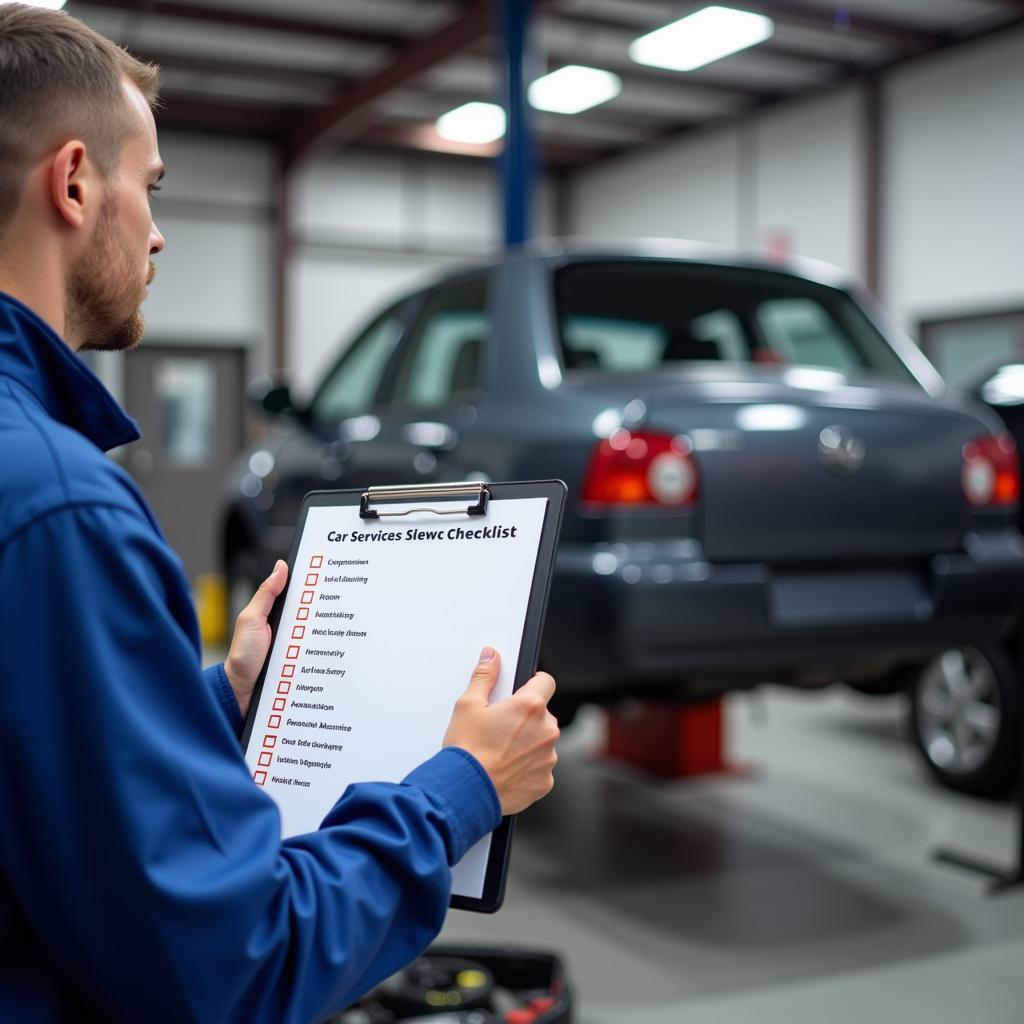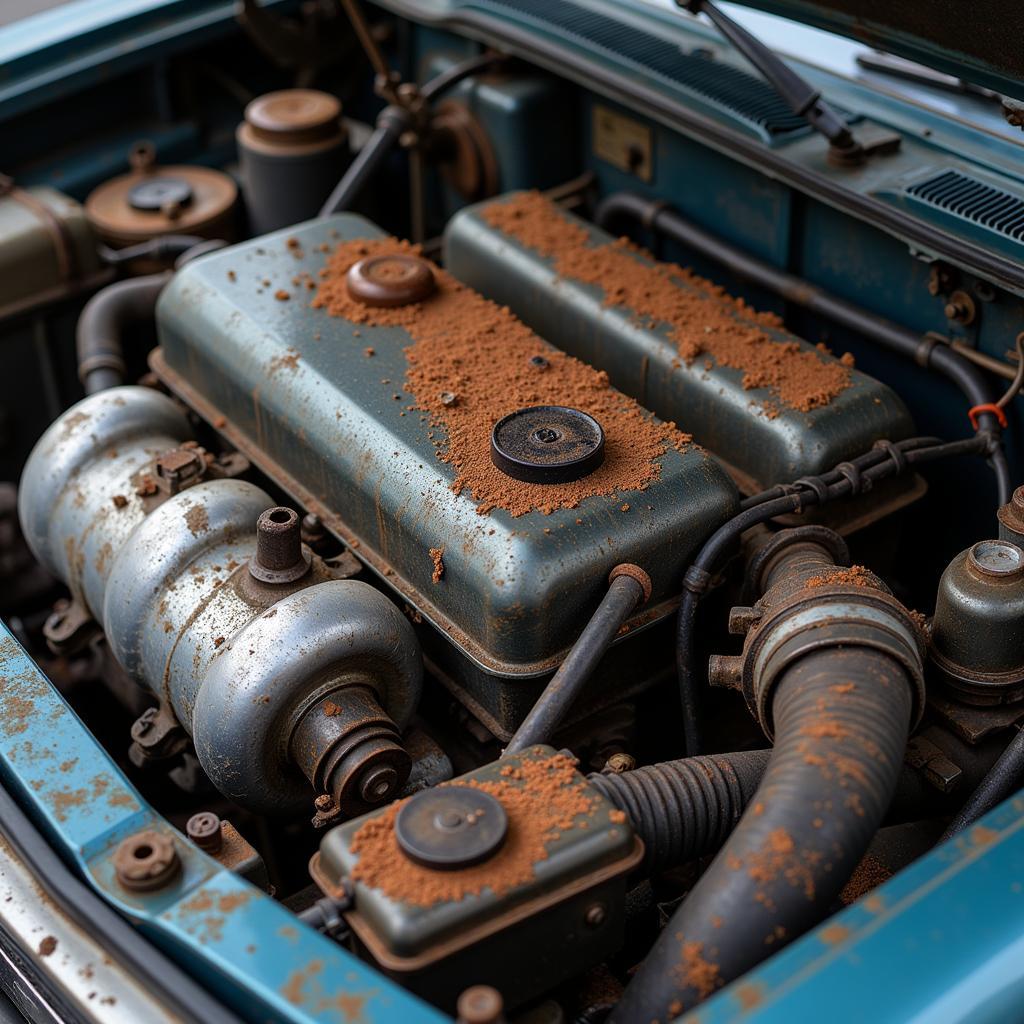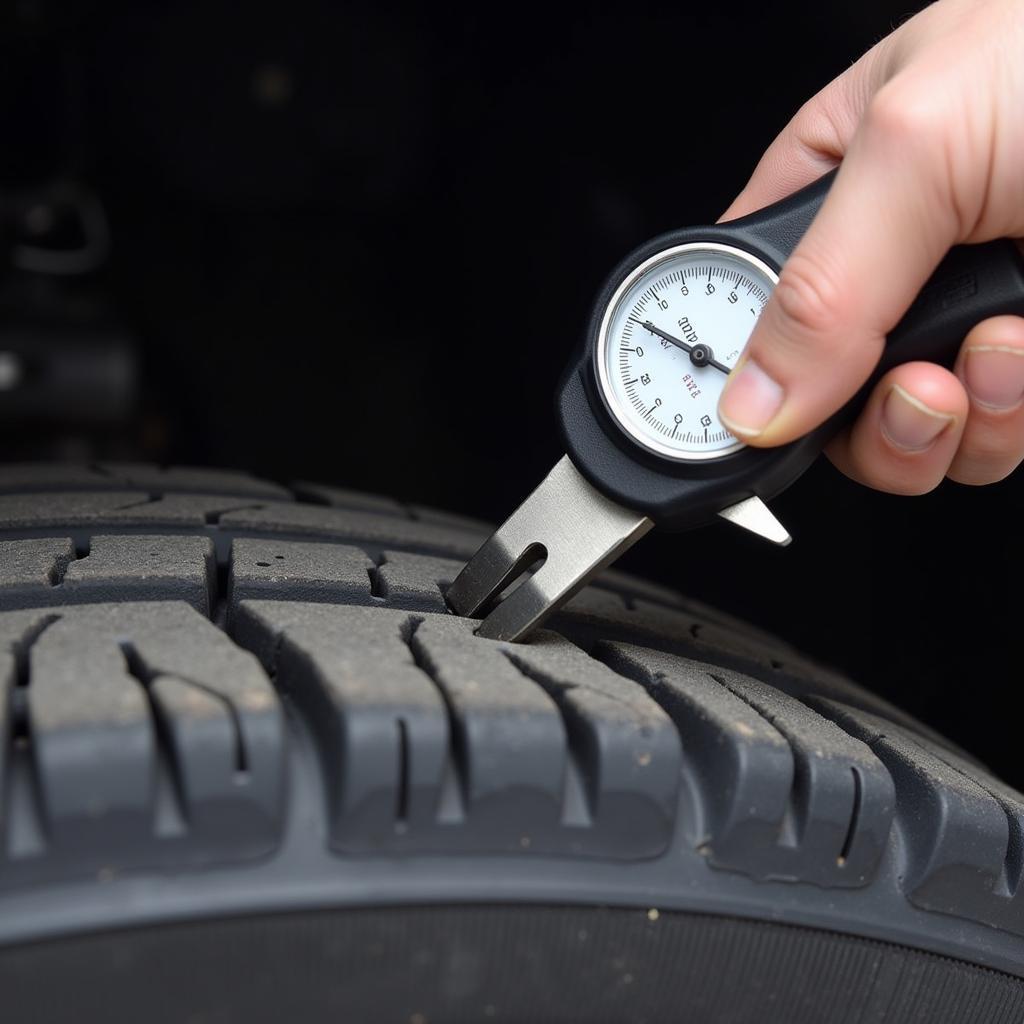What Happens During Car Service?
A car service is an essential part of car ownership, ensuring your vehicle stays in top condition and runs smoothly for years to come. But what exactly happens during a car service? And why is it so important?
This comprehensive guide will walk you through the ins and outs of a typical car service, demystifying the process and explaining why regular maintenance is crucial for your car’s health, your safety, and even your wallet.
Understanding Car Service
Think of car service as a health checkup for your vehicle. Just like we need regular doctor visits, our cars need routine check-ups and maintenance to prevent small issues from becoming major problems.
 Car service checklist
Car service checklist
What Does a Car Service Include?
The specific tasks performed during a car service vary depending on the make and model of your car, its age, mileage, and the type of service required. However, a standard car service usually includes the following:
1. Oil and Filter Change:
This is the cornerstone of any car service. The engine oil lubricates moving parts, preventing friction and overheating. Over time, the oil degrades and the filter gets clogged.
2. Fluid Level Checks and Top-Ups:
Your car relies on various fluids like coolant, brake fluid, power steering fluid, and transmission fluid to function correctly. Mechanics will check their levels and top them up if needed.
3. Tire Inspection and Pressure Check:
Proper tire pressure ensures optimal performance, fuel efficiency, and safety. Mechanics will inspect your tires for wear and tear, and inflate them to the recommended pressure.
4. Brake Inspection:
Brakes are crucial for your safety. Mechanics will inspect your brake pads, discs, and lines for wear and tear, and recommend replacement if necessary.
5. Battery Check:
The battery powers your car’s electrical system. Mechanics will check its voltage and overall condition, cleaning the terminals if necessary.
6. Lights Check:
Malfunctioning lights are a safety hazard. Mechanics will ensure all your headlights, taillights, turn signals, and hazard lights are working correctly.
7. Air Filter Replacement:
The air filter cleans the air entering your engine, ensuring optimal performance. It’s usually replaced during a car service.
8. Visual Inspection:
Mechanics will visually inspect your car for any signs of damage, leaks, or potential issues.
Different Types of Car Services
While the above tasks are common to most car services, there are different types of services depending on the mileage and age of your car.
- Interim Service: Recommended every 6 months or 6,000 miles, this service includes basic checks and essential maintenance.
- Full Service: Recommended annually or every 12,000 miles, this comprehensive service covers all aspects of your car’s health.
- Major Service: Recommended every 24,000 miles or 2 years, this in-depth service is more extensive and includes replacement of major components like spark plugs.
For more information on the types of car services, check out our article on what are the types of car services.
Why is Car Service Important?
Regular car servicing offers numerous benefits:
1. Safety: Regular maintenance ensures your car is safe to drive, preventing brake failures, tire blowouts, or other potentially dangerous situations.
2. Reliability: A well-maintained car is less likely to break down, giving you peace of mind and saving you from unexpected roadside emergencies.
3. Fuel Efficiency: Properly inflated tires, clean air filters, and a well-tuned engine all contribute to better fuel economy, saving you money at the pump.
4. Longevity: Regular servicing helps identify and address minor issues before they escalate into major problems, extending the lifespan of your car.
5. Resale Value: A car with a documented service history is more appealing to potential buyers, ensuring a higher resale value.
“Skipping car service might seem like saving money in the short term, but it can cost you dearly in the long run,” says John Smith, a veteran mechanic with over 20 years of experience. “Regular maintenance prevents costly repairs and keeps your car running smoothly for years to come.”
What Happens If I Don’t Get My Car Serviced?
Neglecting car service might seem tempting, especially if your car appears to be running fine. However, the consequences can be far-reaching and expensive.
 Consequences of neglecting car service
Consequences of neglecting car service
To learn more about the risks associated with neglecting car service, read our article on what happens if i don’t get my car serviced.
Conclusion
Understanding “What Happens During Car Service” empowers you to make informed decisions about your vehicle’s maintenance. Regular car servicing is not just about fixing problems; it’s about preventing them and ensuring your car remains a safe, reliable, and efficient mode of transportation for years to come.

